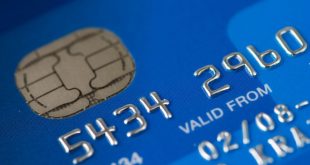Speculation that Visa Checkout and Masterpass brands may be on the way out has surfaced following announcements last week from Visa Inc. and Mastercard Inc. they would support a shared buy button for online purchases based on EMVCo’s Secure Remote Commerce specification. Reports of a possible phaseout of Masterpass, launched …
April, 2018
-
23 April
COMMENTARY: Don’t Shut Merchants out of Development of Secure Remote Commerce
The global payment networks announced last week their support for the EMVCo Secure Remote Commerce Framework (SRC) and mentioned proprietary programs being introduced predicated on this framework with the promise to deliver security, standardization, simplification, fraud reduction, and increased conversion for digital commerce. The promise sounds like a keeper. Yet …
-
23 April
Laundry Payment App Debuts and other Digital Transactions News briefs from 4/23/18
Ready, a company specializing in self-pay software for restaurants, has teamed with Squirrel POS, a supplier of point-of-sale software to the same industry, to allow customers to view, split, and pay their tab on their mobile phones. Automatic Laundry, which provides laundry-management services for multitenant buildings, announced the LaundryConnect Pay …
-
20 April
RealPage Buys ClickPay and other Digital Transactions News briefs from 4/20/18
RealPage Inc., a vendor of software and data analytics to the real-estate business, has agreed to buy ClickPay, a payments processor for rent and other housing receivables, for $218.5 million in cash and stock. The deal is expected to close within the next six months. Infinicept, a company that offers services to …
-
19 April
Advice From a Veteran ISO Exec: Build Scale Fast, And Be Ready to Work With—Or Buy—ISVs
The twin imperatives for independent sales organizations these days are to get bigger fast and to collaborate with independent software vendors, Todd Linden, chief executive of Paysafe North America, tells Digital Transactions News. Linden, a veteran acquiring-industry executive, should know. Paysafe North America’s parent company, London-based Paysafe Holdings UK Ltd., …
-
19 April
Nearly Two-Thirds of Global POS Card Transactions Now Involve EMV Chip Cards and Terminals
Boosted by the rapid rise of chip card payments in Asia and the United States, more than half of general-purpose credit and debit cards worldwide now have an EMV chip, EMVCo reported Thursday. Plus, nearly two-thirds of card-present transactions now involve an EMV card being read by a point-of-sale terminal that …
-
19 April
Mastercard, Visa and AmEx Back EMVCo’s Secure Remote Commerce Spec
Mastercard Inc. says it is preparing for a better online payments experience by backing the EMVCo secure remote commerce specification. Visa Inc., too, says it supports the spec. The specification, announced in November, establishes the technical framework for enabling consumers to use their payment cards across channels more easily than …
-
19 April
7.1 Billion EMV Cards in Circulation and other Digital Transactions News briefs from 4/19/18
NCR Corp. is the top provider of multivendor software for ATMs globally, according to U.K.-based research firm RBR. The company controls 32% of the installed base of 1.3 million machines running the software, 12 points higher than the second-place vendor. EMVCo, the chip card standards organization owned by the major …
-
18 April
Cardholder Spending Lifts AmEx’s Discount Revenue Despite Declining Rates
Boosted by higher cardholder spending, American Express Co.’s discount revenue grew 9% in the first quarter despite a year-over-year decline in its average worldwide discount rate. AmEx reported late Wednesday that discount revenue hit $5.89 billion compared with $5.39 billion a year earlier. Discount revenue is by far AmEx’s largest …
-
18 April
MagTek Launches E-Signature Service and other Digital Transactions News briefs from 4/18/18
Netherlands-based processor Adyen reported that it generated $1.14 billion in revenue last year, up $400 million over 2016, on merchant volume of $122 billion, up 61%. Recent press reports have speculated that Adyen, which has U.S. operations headquartered in San Francisco, is considering an IPO. Shares in online marketplace eBay …






